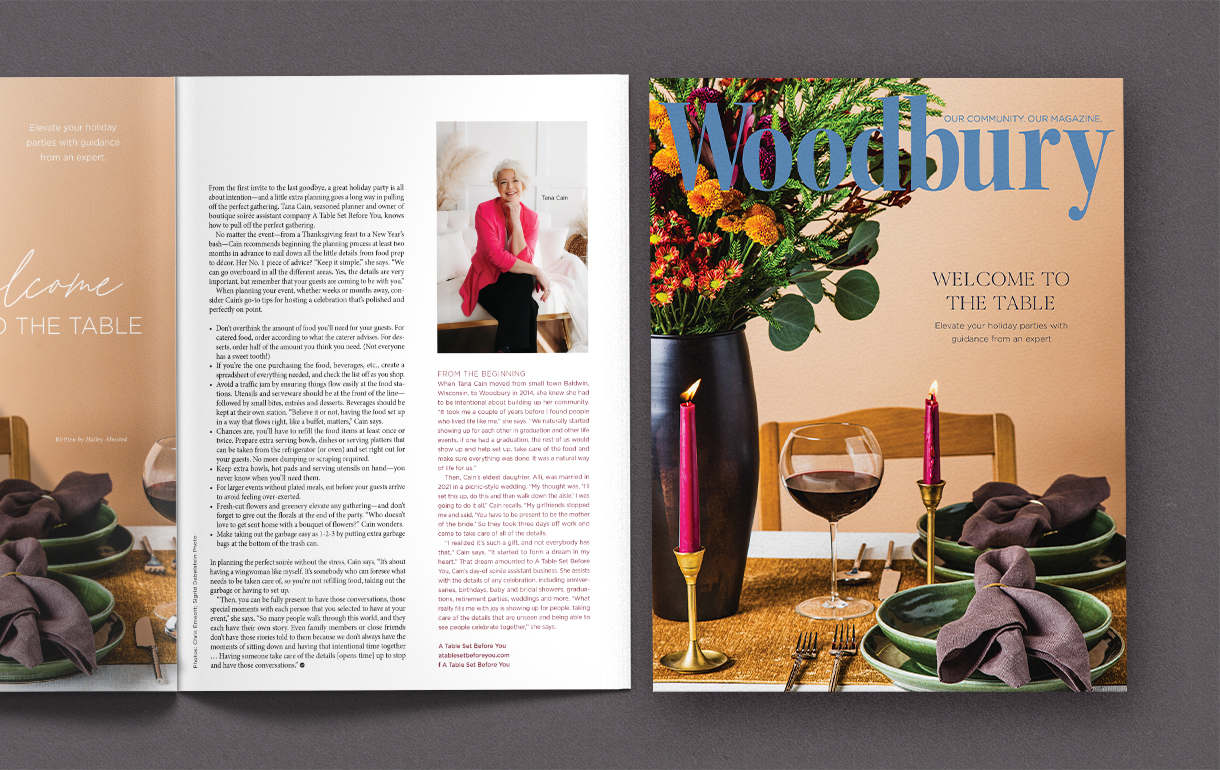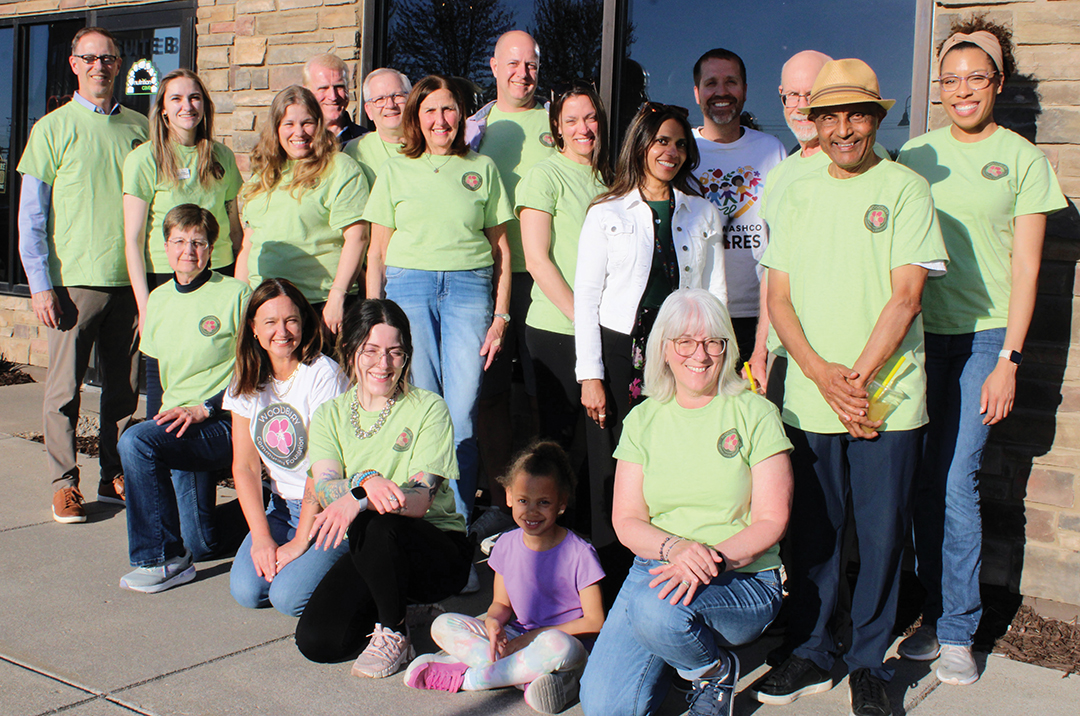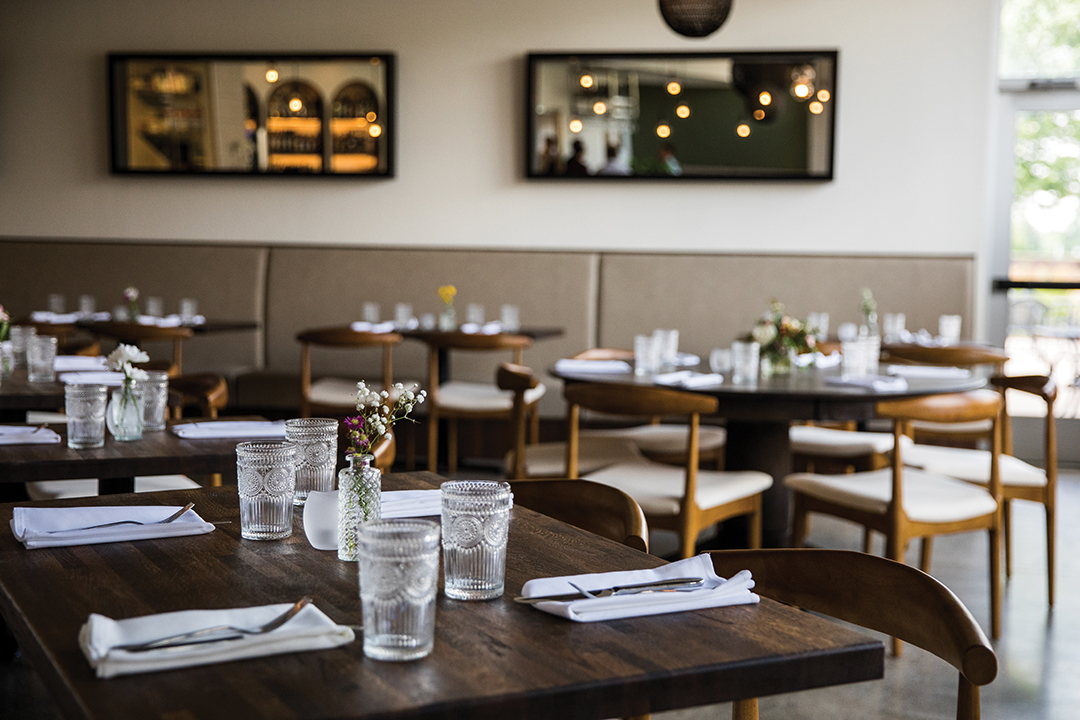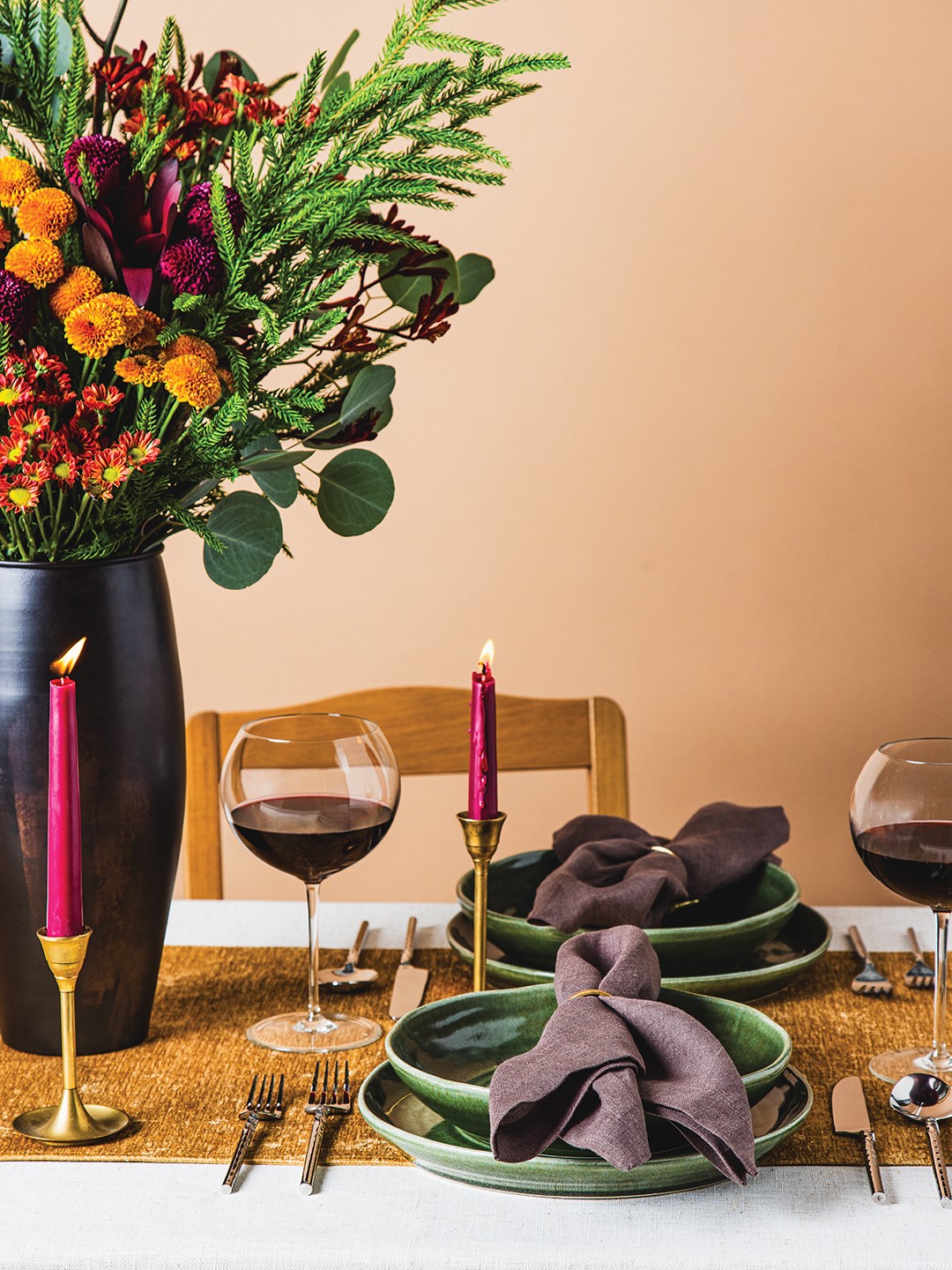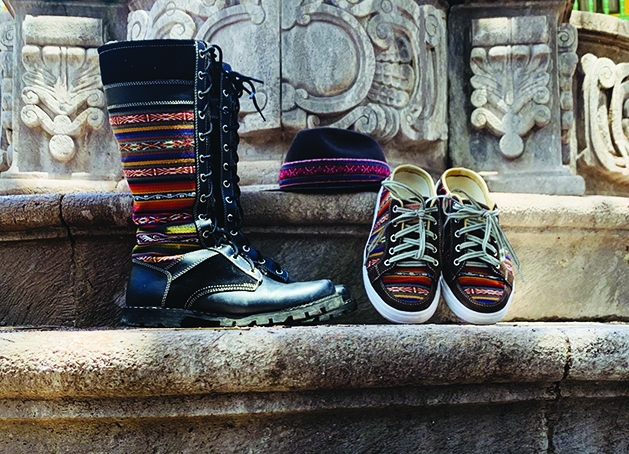
Former Woodbury resident creates slow-fashion footwear company in Peru.
While on a walk on day 26 of her monthlong trek in the Amazon jungle with no running water, no electricity and bathing in the same swamp water as anacondas and crocodiles, Luciana (Anna) Verhoye Passeri, M.D., avoided a step that changed her life.
“I went to put my foot down and, instinctively, I felt something underneath my foot, and I looked down and there was a massive coral snake … I did a Herculean leap to my left to avoid it because they’re extremely deadly,” says the former Woodbury resident of 20 years.
She hollered for help, and the indigenous men from her group did what is customary—knocked out the snake with a stick, so it couldn’t bite and eventually burned it.
Because the snake was just reacting and trying to protect itself, Passeri felt badly. “I thought about how often in my life I have hurt other people out of defensiveness, not intending to, but I was protecting something that really didn’t deserve or need protection,” she says.
“I knew I could do better.”
The snake came to Passeri in her dreams and waking moments, and she kept saying to it, “‘You cannot come into my presence until you transmute your power,’” she says. “On the last day, I said, ‘You must transmute your power. Look to your skin. You’re beautiful,’ … In this poof moment, the snake kind of evaporated, and I felt this really beautiful white holy presence.”
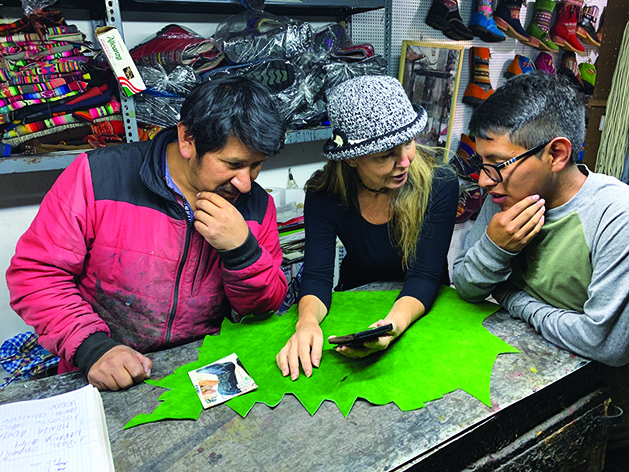
She left the jungle three days later and met up with her husband, Jim, in Cusco, Peru. They walked into a teeny building and met a man, Julio Huillaca, who later became Passeri’s friend, master cobbler and director of operations at her company.
“I saw his work, and I looked at my husband and said, ‘This is it.’ The colors reminded me of the snake and how wearable art is really important, and I wanted to use wearable art to support people in stepping into their power and living their best lives,” she says.
Established in 2019, Passeri is now a footwear business with 10 employees in a small village in Peru, carrying products handcrafted by local Peruvian artisans using handwoven alpaca wool textiles and fine leather from South America.
The company purchases textiles handwoven on traditional Peruvian pedal, treadle and portable back-strap looms from three local artisan families, one of which provides wool from its 150-head alpaca farm at 12,000 feet in the Andes. Wool is dyed using only natural pigments, and all the shoes are hand stitched, including botitas (booties), kicks, high-top sneakers and tall boots.
Passeri designs the shoes, and master cobbler Huillaca helps to co-create the final products, like the pair she found comfort in while hiking Machu Picchu.
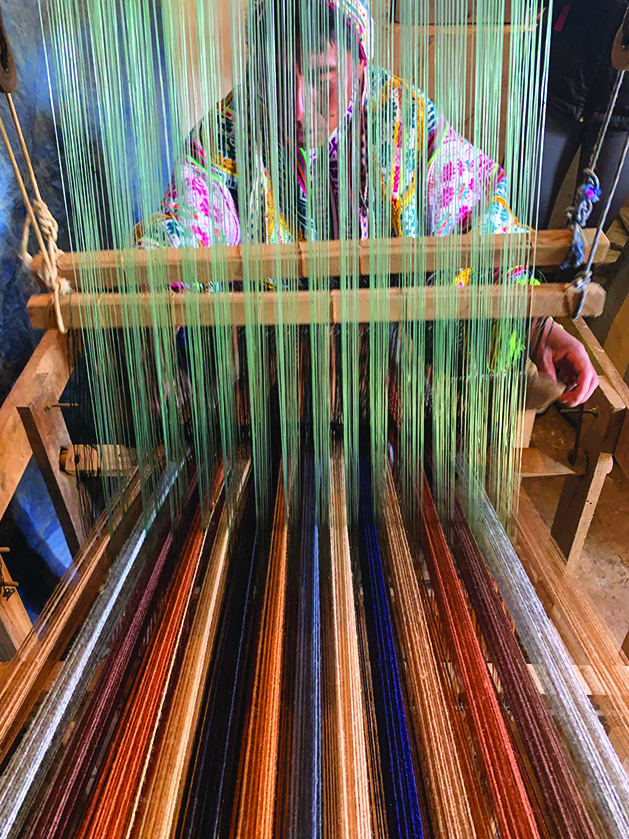
But she wanted to be more than just another shoe company. “Our vision is to inspire and empower people to live consciously, recognizing all people have the power to live their best lives by unwaveringly embracing their natural gifts and talents,” Passeri says.
A lover of nature, it was natural for Passeri to focus on creating a slow-fashion company, dedicated to making the lowest imprint as possible. “As I started designing shoes, I knew that we had to be an antidote for the fast-fashion movement,” she says. “People’s lives have been infiltrated by fast-fashion, and I wanted to give people an alternative, educating people on the benefits of the slow-fashion movement.”
She points out that the fast-fashion business model rapidly adjusts to changing trends, mass producing millions of items of clothing, usually using low quality materials, which are difficult to recycle and repurpose.
At Passeri, indigenous Peruvian men and women from the Andean mountains hand craft all the textiles, handweaving their indigenous stories into their designs. “There’s one textile in our botitas you can see there’s a little cocoa bean, and the symbol of mountains and stars and that’s them sharing their ancestral stories with people through our products,” Passeri says. “It’s such a gift to them because they want people to know their stories and wear their products.”
Because artisans create weavings on their looms, the shoes are constantly changing according to the designs of the families. Products become limited editions because, once a family has created 20 feet or so of weavings, the cuts from the next batch don’t look the same. “It’s this really beautiful gift that comes out of slow fashion and out of our mission to be that alternative to people,” Passeri says.
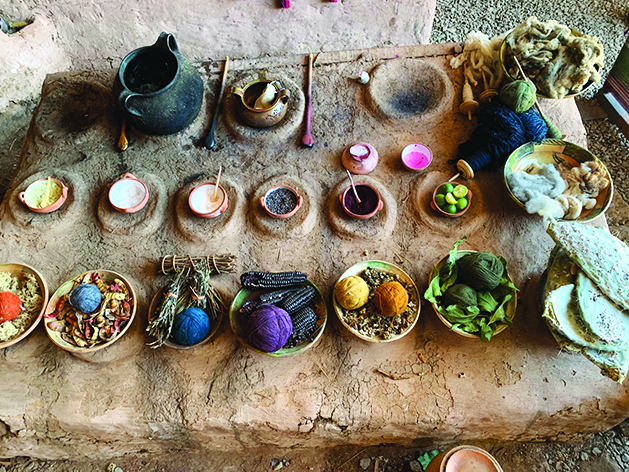
The Ola (wave) shoe is a good example. There are two weaver families that create the Ola pattern. They switch out the colors regularly, but it takes up to two weeks to turn over a loom and to change all the colors. “These looms are no joke,” she says. “When I watch these people do their weavings, it’s jaw dropping and how they hold these patterns in their minds just blows my mind. But it’s a tradition of theirs in the Andean mountains, and I’m really grateful to be working with these families.”
Passeri supports and cares for employees and artisans and sustains the environment using natural fibers and textiles. “For us, slow fashion is not just that all our products are handmade with really beautiful quality products, but we also pay thrivable wages,” she says. “It’s not just enough to live. People can send their kids to school. They can take vacations. They can buy homes. We provide all our employees breakfast, lunch and a snack before the end of their day and clean water, coffee and tea. They get an entire month vacation every year and a bonus as the company thrives, so we share also in our profits.”
Passeri is open about her inexperience in starting a company in another country. “In building this company, I had no idea what I was doing,” she says. She has a background in leadership and management, plus she had worked on social justice issues for more than 20 years. Passeri held an annual fair-trade sale in Woodbury’s Eagle Valley community to support social justice issues sourcing clothing, scarves and jewelry from indigenous people and artisans.
“There were weeks where every single day I would just say to myself, ‘I got this. I can do it. I can figure it out,’ and I’d be wearing the shoes and it really got me through [it],” she says.
Those are the times that helped craft Passeri’s mission to develop a company that encourages people to decompress, connect and inspire people to step into their power.
Passeri
Facebook: Passeri Footwear
Instagram: @passerifootwear





